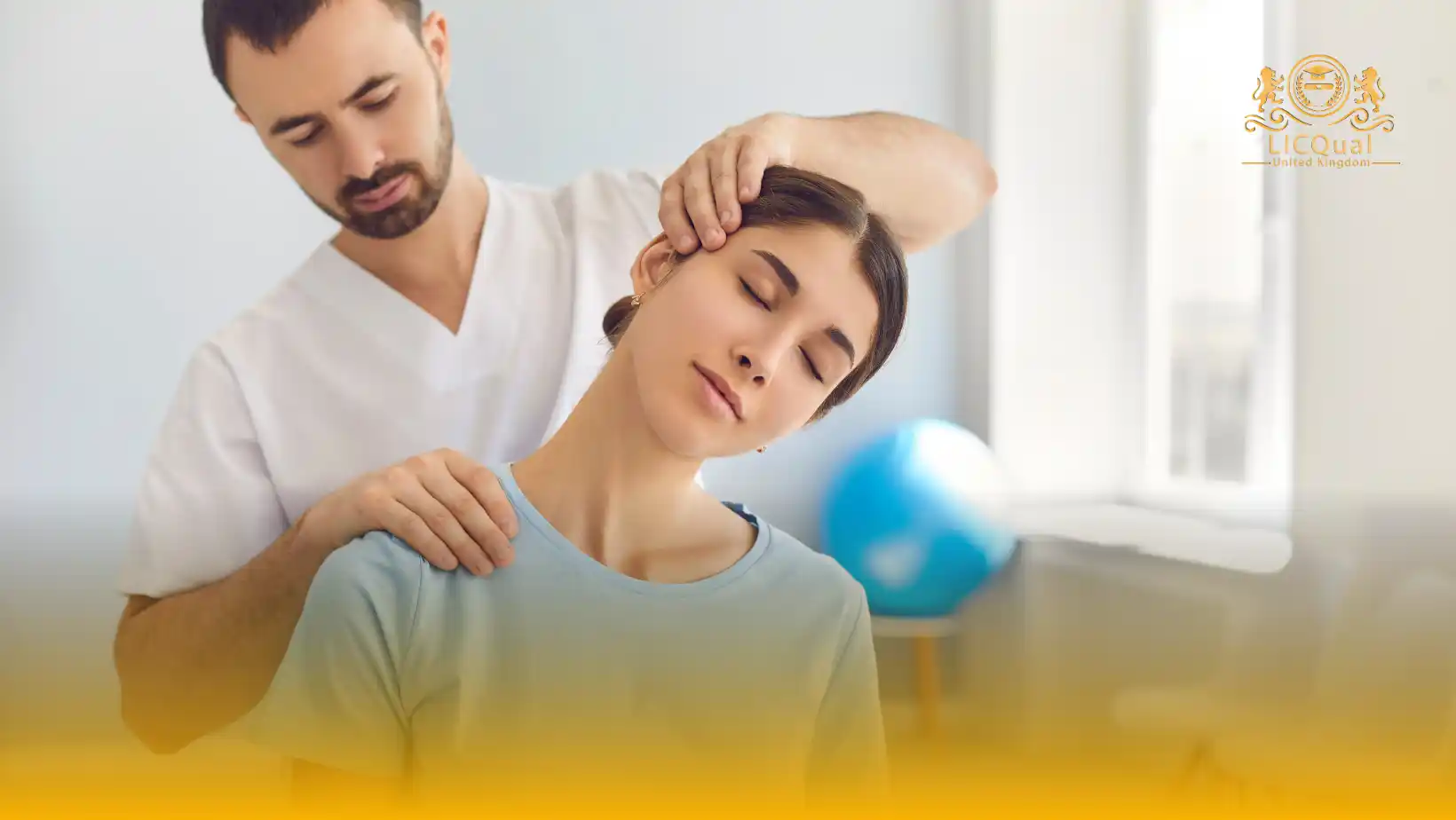The LICQual Level 3 Diploma in Orthopedics (Dip Ortho) is a specialized qualification designed for healthcare professionals and practitioners seeking to advance their knowledge and skills in musculoskeletal health and orthopedic care. This diploma is ideal for learners who already have foundational experience in healthcare or related fields and wish to deepen their understanding of orthopaedic conditions, diagnostic techniques, treatment strategies, and patient management. It is not intended for fresh entrants, but for professionals committed to enhancing their career prospects, expanding their expertise, and maintaining their Continuing Professional Development (CPD).
The course provides comprehensive coverage of key areas such as musculoskeletal anatomy and physiology, orthopaedic disorders, diagnostic procedures, surgical interventions, rehabilitation, and patient-centred care. Learners will gain both theoretical knowledge and practical insights that are essential for effective clinical decision-making and the delivery of high-quality orthopaedic care.
Centres offering the LICQual Level 3 Diploma in Orthopedics are required to maintain the highest standards of education. This includes having competent and qualified staff, access to up-to-date training materials, clinical equipment, and a supportive learning environment. Such standards ensure learners receive robust guidance, hands-on experience, and opportunities to achieve excellence throughout their studies.
Upon completion, learners will be equipped with the skills and expertise to enhance their professional credibility, contribute effectively in orthopedic and healthcare settings, and advance their careers while delivering safe, informed, and evidence-based patient care.
Course Overview
Qualification Title
LICQual Level 3 Diploma in Orthopedics (Dip Ortho)
Total Units
6
Total Credits
60
GLH
240
Qualification #
LICQ2200872
Qualification Specification
To enroll in the LICQual Level 3 Diploma in Orthopedics (Dip Ortho) , applicants must meet the following criteria:
|
Qualification# |
Unit Title |
Credits |
GLH |
|---|---|---|---|
|
LICQ2200872-1 |
Musculoskeletal Anatomy and Physiology |
10 |
40 |
|
LICQ2200872-2 |
Orthopedic Disorders and Conditions |
10 |
40 |
|
LICQ2200872-3 |
Diagnostic Techniques and Orthopedic Investigations |
10 |
40 |
|
LICQ2200872-4 |
Orthopedic Treatment and Rehabilitation |
10 |
40 |
|
LICQ2200872-5 |
Orthopedic Emergencies and Acute Care |
10 |
40 |
|
LICQ2200872-6 |
Musculoskeletal Health Promotion and Patient Management |
10 |
40 |
By the end of this course, learners will be able to:
Unit 1: Musculoskeletal Anatomy and Physiology
By the end of this unit, learners will be able to:
- Explain the structure and function of bones, joints, muscles, and connective tissues.
- Describe musculoskeletal movement mechanics and physiological processes.
- Analyze bone growth, repair, and musculoskeletal adaptations in health and disease.
- Demonstrate understanding of the interaction between skeletal and muscular systems.
Unit 2: Orthopedic Disorders and Conditions
By the end of this unit, learners will be able to:
- Identify and classify common orthopedic conditions and musculoskeletal disorders.
- Explain the pathophysiology, risk factors, and progression of these conditions.
- Recognize clinical signs, symptoms, and potential complications.
- Evaluate the impact of lifestyle, occupational, and genetic factors on musculoskeletal health.
Unit 3: Diagnostic Techniques and Orthopedic Investigations
By the end of this unit, learners will be able to:
- Explain the principles and applications of key orthopedic diagnostic tests.
- Demonstrate understanding of imaging techniques, physical assessments, and clinical observation.
- Interpret investigation results to support clinical decision-making.
- Apply safety, patient preparation, and ethical considerations during diagnostics.
Unit 4: Orthopedic Treatment and Rehabilitation
By the end of this unit, learners will be able to:
- Evaluate non-surgical and surgical treatment approaches for musculoskeletal conditions.
- Explain rehabilitation strategies including physiotherapy, occupational therapy, and pain management.
- Analyze surgical interventions such as joint replacement, fixation, and arthroscopy.
- Develop patient-centred treatment and rehabilitation plans based on evidence-based practice.
Unit 5: Orthopedic Emergencies and Acute Care
By the end of this unit, learners will be able to:
- Recognise acute musculoskeletal injuries and orthopedic emergencies.
- Apply emergency response, immobilization techniques, and immediate care protocols effectively.
- Demonstrate knowledge of triage, monitoring, and referral procedures in urgent care scenarios.
- Make informed and timely decisions in acute orthopedic situations.
Unit 6: Musculoskeletal Health Promotion and Patient Management
By the end of this unit, learners will be able to:
- Develop strategies for prevention, long-term management, and rehabilitation of musculoskeletal conditions.
- Advise patients on exercise, ergonomics, nutrition, and lifestyle modifications to support musculoskeletal health.
- Demonstrate effective communication, patient education, and professional collaboration skills.
- Apply ethical practice, clinical governance, and CPD principles in orthopedic care.
The LICQual Level 3 Diploma in Orthopedics (Dip Ortho) is designed for healthcare professionals, clinicians, and aspiring specialists who want to gain accredited expertise in musculoskeletal health and orthopedic care. This orthopedics diploma for healthcare professionals is ideal for doctors, nurses, physiotherapists, researchers, and students who aim to strengthen their knowledge, improve patient outcomes, and advance their careers in one of the most in-demand areas of medicine.
1. Medical Doctors and Physicians
- Expand your clinical expertise with accredited orthopedic training.
- Learn evidence-based approaches to diagnosing bone and joint conditions.
- Gain skills in managing fractures, arthritis, and musculoskeletal disorders.
- Strengthen your professional profile with a recognized qualification.
- Stay competitive in the evolving field of orthopedic medicine.
2. Nurses and Allied Health Professionals
- Acquire practical skills in orthopedic patient care and rehabilitation.
- Support physicians in managing trauma and musculoskeletal conditions.
- Improve career prospects with a CPD-approved qualification.
- Gain confidence in patient communication and post-surgical care.
- Build expertise in a high-demand healthcare specialty.
3. Physiotherapists and Rehabilitation Specialists
- Learn advanced rehabilitation techniques for orthopedic patients.
- Gain expertise in post-fracture and post-surgical recovery care.
- Strengthen your practice with evidence-based orthopedic knowledge.
- Improve patient outcomes through targeted therapy strategies.
- Position yourself as a trusted professional in musculoskeletal health.
4. Paramedics and Emergency Care Providers
- Learn to identify and respond to orthopedic emergencies effectively.
- Gain knowledge of acute care for fractures and trauma cases.
- Strengthen decision-making skills in high-pressure situations.
- Enhance your role in emergency and pre-hospital care.
- Earn a recognized qualification to boost professional credibility.
5. Biomedical and Clinical Researchers
- Deepen your understanding of musculoskeletal science and pathology.
- Contribute to research in orthopedics and trauma management.
- Gain a recognized qualification to support academic publications.
- Collaborate with healthcare institutions on clinical studies.
- Advance your career in medical research and innovation.
6. Public Health and Healthcare Administrators
- Understand the global impact of orthopedic conditions on healthcare systems.
- Gain insights into prevention strategies and healthcare policies.
- Support community-based orthopedic awareness programs.
- Strengthen institutional credibility with accredited staff.
- Promote innovation in musculoskeletal healthcare delivery.
7. Students and Aspiring Healthcare Professionals
- Build a strong foundation in orthopedics early in your career.
- Gain a competitive edge when applying for advanced programs.
- Learn from expert-led modules designed for beginners and professionals.
- Acquire knowledge that bridges theory with clinical practice.
- Position yourself for future specialization in orthopedic medicine.
Centres delivering the LICQual Level 3 Diploma in Cardiology must meet strict standards to ensure high-quality training and successful learner outcomes. The key requirements include:
- Qualified and Competent Staff: Centres must employ trainers and assessors with relevant qualifications, professional experience, and expertise in cardiology or healthcare. Staff should be capable of delivering both theoretical and practical components effectively.
- Learning Resources and Materials: Centres must provide up-to-date textbooks, reference materials, clinical equipment, and digital learning platforms to support comprehensive learning.
- Facilities and Equipment: Centres should maintain safe, well-equipped classrooms, laboratories, and clinical simulation areas to facilitate practical training and hands-on experience.
- Assessment and Evaluation: Centres must have robust assessment procedures in place, including written assignments, practical demonstrations, and continuous learner evaluation, aligned with international standards.
- Learner Support and Guidance: Centres should offer mentorship, academic guidance, and access to learning support to help learners achieve their full potential.
- Health and Safety Compliance: Centres must adhere to all health and safety regulations, including risk management for practical sessions and clinical training.
- CPD and Professional Development: Centres should encourage ongoing professional development for staff and learners to maintain high-quality standards in cardiology education.
By meeting these requirements, centres ensure that learners receive a comprehensive, professional, and internationally recognized education in cardiology, preparing them for career advancement and excellence in patient care.
Assessment and Verification
All units within this qualification are subject to internal assessment by the approved centre and external verification by LICQual. The qualification follows a criterion-referenced assessment approach, ensuring that learners meet all specified learning outcomes.
To achieve a ‘Pass’ in any unit, learners must provide valid, sufficient, and authentic evidence demonstrating their attainment of all learning outcomes and compliance with the prescribed assessment criteria. The Assessor is responsible for evaluating the evidence and determining whether the learner has successfully met the required standards.
Assessors must maintain a clear and comprehensive audit trail, documenting the basis for their assessment decisions to ensure transparency, consistency, and compliance with quality assurance requirements.







